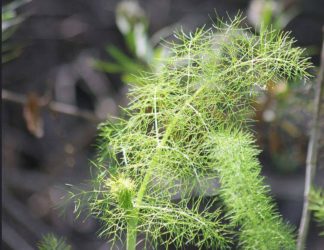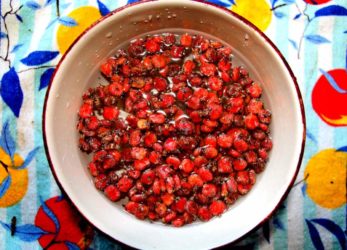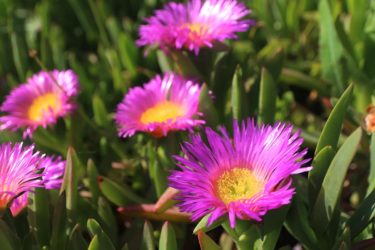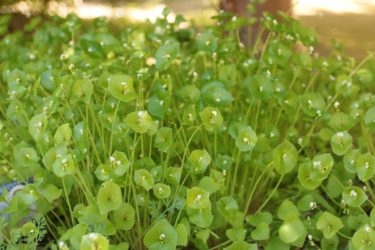
Wild Fennel
Fennel has had a rich history since the ancient days, being revered by the Greeks and the Romans for its medicinal and culinary properties and even spiritual powers. Although originally found only in Europe, today fennel is used and grown throughout the world. We are very fortunate to have this herb growing wild in San Diego.
Fennel belongs to the Umbellifereae family and is closely related to parsley, carrots, dill and coriander. It can be identified by its stalks which are are topped with feathery green leaves and, when in bloom, clusters of small yellow flowers. The scent may be one of the easiest ways to identify it though as it smells almost identical to licorice.

Medicinal
Due to fennel’s unusual phytonutrient properties and high antioxidants, it is known to help prevent inflammation and can even reduce the risk of cancer if eaten in large quantities. The fennel bulb is an excellent source of vitamin C and fiber preventing free radicals from roaming inside the body and helping to reduce elevated cholesterol levels. It is also a very good source of potassium, a mineral that helps lower high blood pressure.

Culinary
Fennel is such a generous herb. The whole plant is edible, meaning the bulb, stalk, leaves and seeds can all be eaten! I usually only cook with the leaves but maybe one day I will graduate to using the bulbs and stalk also. Fennel is oftentimes associated with Italian cuisine which works well in my household since more often than not, Mediterranean is what I am cooking. I usually use it to enhance the flavors in potatoes, stir-fry or fish.
The fennel stalk and bulb are crunchy and the whole plant is slightly sweet with a licorice-esque flavor. Like most fresh herbs, a little goes a long way. You want the herb to complement the meal, not overpower. Fennel adds a perfect unique touch that will make your guests wonder what you used for such a delicious flavor!

Spiritual
Due to fennel’s purifying properties, it has long been associated with longevity, courage and strength. Many believe that its powerful oil can be used to ward off negative energies. During the Medieval times, warriors would use it for protection during battle.
Many spiritualists believe that fennel can calm fits induced from black magic casts and also prevent curses, negativity and possession. It is said that fennel is also used in assistance to influencing others to trust your word. Perhaps this is because of its calming scent.
Fennel symbolizes victory, heroism, flattery, strength, praiseworthiness, fierceness in battle and success. It is also associated with healing, vitality and virility. Greek myths state that fennel was not only closely associated with Dionysus, the Greek god of food and wine, but that a fennel stalk passed down knowledge from the gods to men.

Host Plant
I have successfully propagated a few fennel plants in the past and grew them in my garden. This is when I learned that fennel is one of the host plants for swallowtail butterflies! This may be obnoxious to some, but I was actually ecstatic to watch these beautiful caterpillars grow up every day. 🙂







Anonymous
Fennel bulb sliced thinly and tossed with red onion, blood oranges and oil and vinegar is delightful.
Anonymous
Hardly “lucky” to have it. It’s an invasive non-native that pushes out native plants